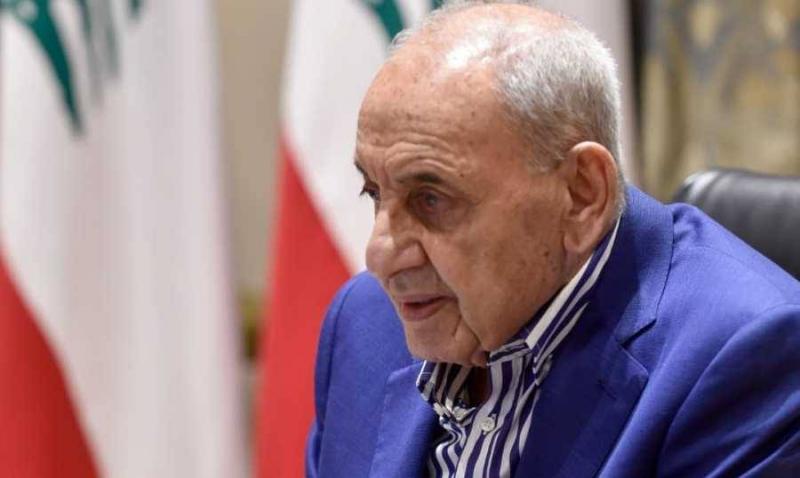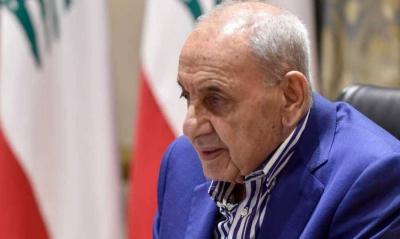Lebanon is the only country in the world where the president is elected without being a candidate; the electoral process is rarely competitive. The president is chosen through consensus before the vote, and if consensus fails, the country falls into a prolonged vacuum. In Lebanon, there are undeclared candidates, prospective candidates, and others who navigate the presidency behind the scenes, as stated in "Nidaa al-Watan." Following contacts, consultations, and shuttle visits from international envoys, some have concluded that the presidential situation in Lebanon is so complicated that the deadline could be postponed for years unless a regional and international settlement allows for a president to be in Baabda within 24 hours. This settlement is deemed regionally necessary given the scale of domestic disagreements. An Arab diplomat in a private session indicated that the whole matter lies with "Abu Mustafa," referring to Speaker of Parliament Nabih Berri, who could facilitate the election of the president whenever he wants. The diplomat believes that Berri could adopt a more flexible position and open the parliament for the election.
For this reason, the Quintet will resume its efforts from Ain al-Tineh, perhaps succeeding this time where it failed previously. What the diplomat did not mention is that the division regarding potential candidates extends to the countries involved in the presidential file. Five countries are divided, and each has its own candidate that they avoid openly supporting while assessing potential candidates.
Suleiman Franjieh is generally an accepted figure. His family and regional relationships make him a logical candidate in the eyes of some within the Quintet. His relationship with the Syrian regime may facilitate the return of displaced persons and help resolve the issue of the porous borders with Syria. Franjieh enjoys acceptance from several Quintet countries, with Qatar and France showing no opposition to his candidacy. However, his issue with Saudi Arabia and the United States is that he is a candidate of Hezbollah. Internally, he lacks support from the two main Christian blocs, which the Quintet takes into consideration. Hezbollah's insistence on Franjieh makes discussions about his candidacy with Saudi Arabia and America unlikely unless the two countries reach a mutual understanding.
The nomination of the army commander is still being discussed, but his problem, according to the Quintet, is his need for a constitutional amendment that requires the consent of 86 votes, which is difficult to secure in a divided parliament like the current one. The nomination of General Elias Bechara has not been outright rejected by some Quintet countries, which see him as a candidate that might provide a common ground, yet he does not enjoy consensus.
There is a crisis concerning the names of presidential candidates. There is no agreed-upon candidate or one that forms a minimum agreement. In one of the sessions, a representative from the Quintet suggested preparing a list of nine candidates selected by Bkerke, from which the duo could choose three in the first stage, then agree on one of those three for the presidency. There was an attempt to convince the head of the Free Patriotic Movement, Gibran Bassil, to support either Franjieh or the army commander, or otherwise propose a third candidate not currently in circulation.
Amidst this confusing scene, France has not missed the opportunity to play a role in the presidency. They sent to explore the possibility of resuming visits by their envoy but received no satisfactory response. In the presence of the French ambassador, a parliamentary reference did not hesitate to criticize French envoy Jean-Yves Le Drian for allegedly hindering Berri's dialogue initiative when he announced the third candidate. France's position remains ambiguous even to the countries represented in the Quintet and is considered less effective among its members according to "Nidaa al-Watan."
Quintet members agree that there is an issue with internal obstinacy. The Free Patriotic Movement refuses to show flexibility concerning the nominations of the army commander and Suleiman Franjieh, believing that the option of Bechara is better than that of the army commander, while Bkerke is more aligned with George Khouri than with other candidates. Additionally, the duo is unwilling to retract their support for Franjieh despite knowing the conditions are unfavorable. The party admits that the presidency is linked to the fate of Gaza and subsequent settlements, emphasizing that the solution is internal.
The problem for the duo lies in their insistence on Franjieh, while the opposition is steadfast in backing Jihad Azour. The withdrawal of any party from its candidate puts them at a disadvantage, with the caveat that Hezbollah, in agreement with the Free Patriotic Movement, can elect a president, regardless of who the candidate is, but the opposition cannot elect a president without the duo’s support. Once again, all eyes are on the Quintet. Those expecting to meet with them are hoping for new developments to emerge, and following this round and the conclusion of Ramadan, the envoys will resume their efforts, especially if a truce is announced, which is the crux of the matter.




